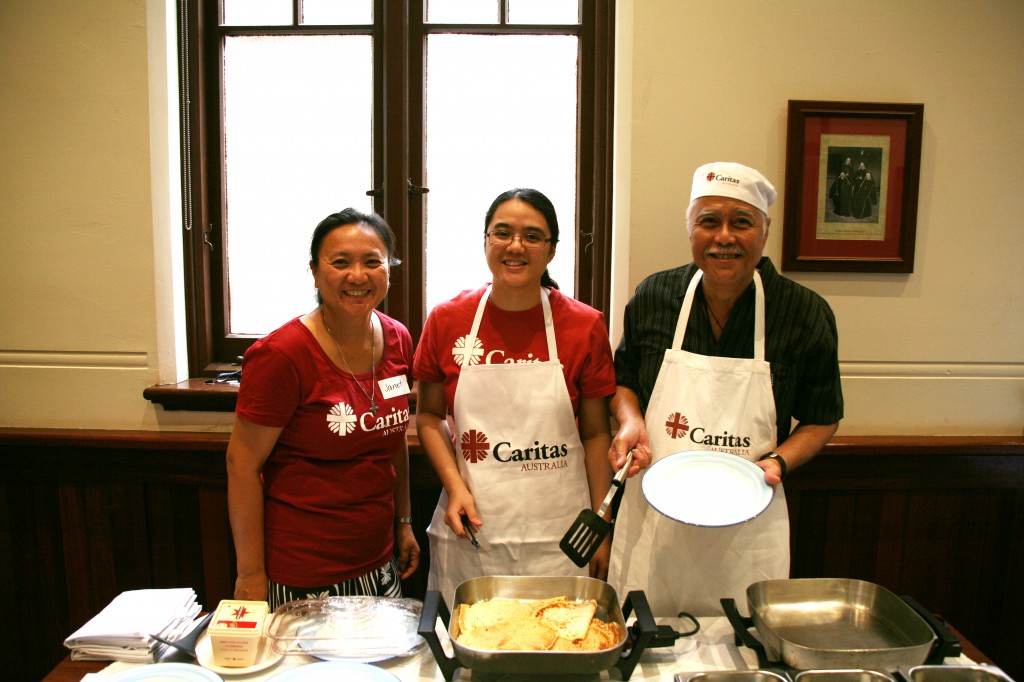
Pancakes were aplenty at this week’s Shrove Tuesday festivities, thanks to Caritas Australia’s Perth office.
The Perth arm of the international aid and development organisation of the Catholic Church extended an open invitation on Tuesday to all staff from Perth Catholic organisations and agencies to take a few moments and learn about the work of Caritas – through the words of guest speaker Gary Bonney – while enjoying some pancakes.
Mr Bonney, a third-year Bachelor of Arts student currently studying Social Justice and Education at the University of Notre Dame’s Fremantle campus, talked about his experience of visiting an Indigenous community in Peru, in 2012, which formed part of his studies.
Hailing originally from the Wongi tribe, near Kalgoorlie, Western Australia, Mr Bonney, (or Curly as he is known to family and friends) told the crowd gathered at the Pastoral Centre, Highgate about the impact of his experience in Peru seeing the work of Caritas first hand on his understanding of the real meaning of social justice.
Mr Bonney said the work of Caritas in Peru was of significant importance to him, due to the focus on children, youth and families.
“Not only have I been able to hear about the theory of Caritas’ work, I’ve been able to see it at the grassroots level,” Mr Bonney said.
“It has really inspired me, and somewhat strengthened my faith in humanity,” he said.
In speaking to Archdiocese of Perth Communications and Media Office Editor Jamie O’Brien, Mr Bonney said one of the highlights of his trip was being able to play the Didgeridoo for the Indigenous communities who live in the Andes mountains of Peru.
Mr Bonney showed examples of how Caritas is helping in a region in Peru, not far from the capital, Lima, assisting people with growing their own food and building appropriate housing.
He first became involved in Caritas through the Walk-As-One Program.
Shrove Tuesday is a movable festival determined by Easter. The expression Shrove Tuesday comes from the word shrive, meaning absolve.
Shrove Tuesday is observed by many Catholics, who “make a special point of self-examination, of considering what wrongs they need to repent, and what amendments of life or areas of spiritual growth they especially need to ask God’s help in dealing with.”
Being the last day before the penitential season of Lent, related popular practices, such as indulging in food that one sacrifices for the upcoming forty days, are associated with Shrove Tuesday celebrations and before commencing the fasting and religious obligations associated with Lent.